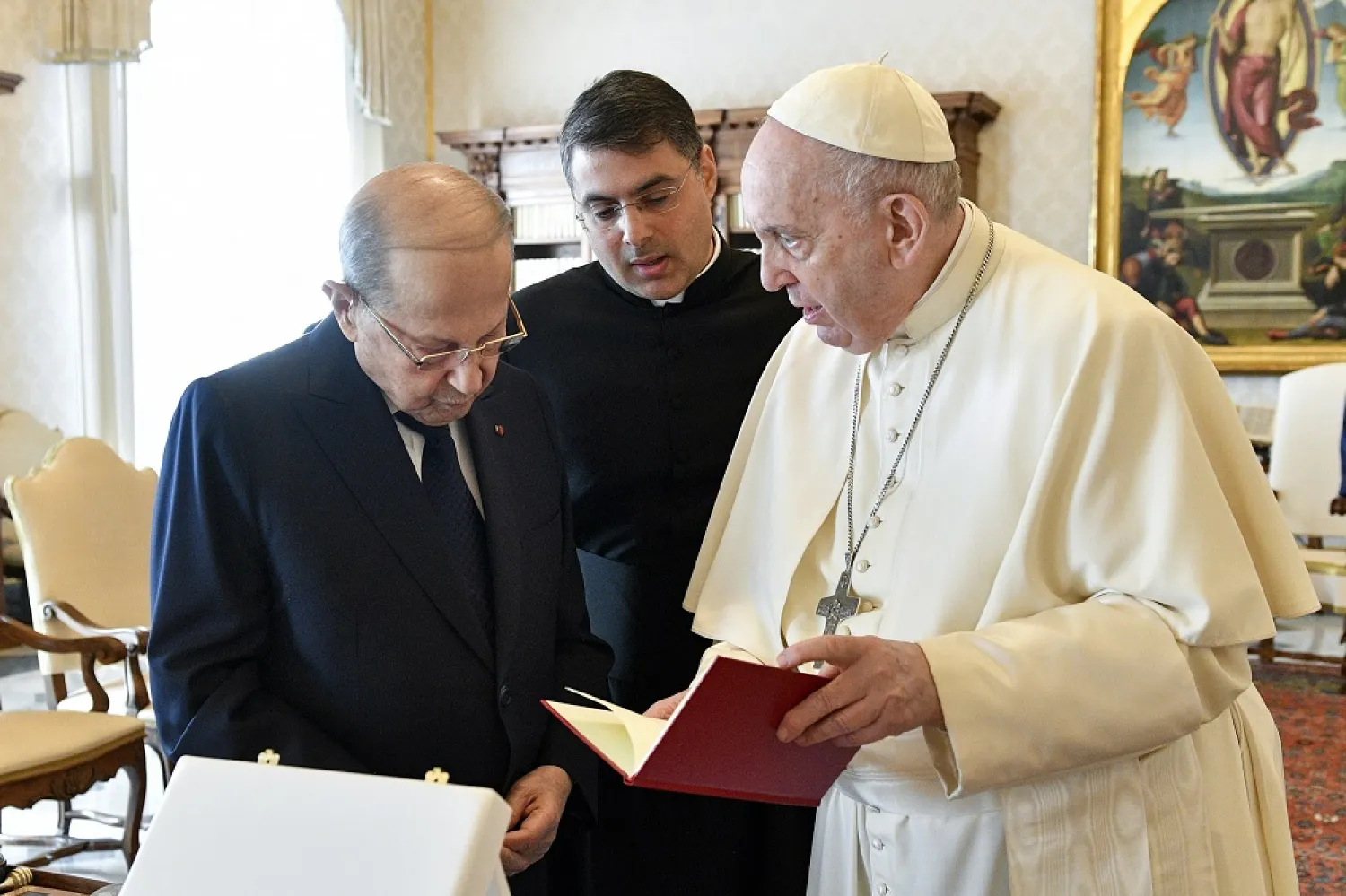Pope Francis reiterated his intention to visit Beirut imminently, stressing that Lebanon was at the center of his concerns.
His comments came during a meeting with President Michel Aoun at the Vatican on Monday.
A statement by the Holy See Press Office said the talks were “cordial”, adding that the two leaders discussed various interests of common concern.
The meeting highlighted the good diplomatic relations between the Vatican and Lebanon, which are marking their 75th anniversary this year, according to the statement.
“Attention turned to the grave socio-economic problems the country is experiencing, and the situation of refugees, in the hope that the aid of the international community, the upcoming legislative elections, and the necessary reforms may contribute to strengthening peaceful coexistence between the various religious confessions that live in the Land of the Cedars,” the Vatican said.
The statement added that the Pope and the Lebanese president also touched on the “disastrous consequences” of the Port of Beirut explosion on Aug. 4, 2020, especially making reference to the “demand for justice and truth expressed by the families of the victims.”
Aoun landed in Italy on Sunday. Upon arrival in Rome, he said that he would invite Pope Francis to visit Beirut, adding that the Pontiff’s spiritual and moral authority can help the country during this difficult period.
A statement by the presidential office emphasized that Lebanon had a special place in the Pope’s prayers and was at the heart of his concerns, despite tensions around the world.
“Lebanon does not lose the sight of concerns of the Holy See,” it noted.
The statement also quoted the Pope as saying that it was necessary to preserve the Christian presence in the East, as well as coexistence, which has made Lebanon an example and message.
“Soon I will visit Lebanon. This is a decision I have taken, because this country remains, despite anything, a model for the world,” Pope Francis asserted, as reported by the Lebanese presidency.
For his part, Aoun thanked the Pope for receiving him, especially during such a critical time in the world, in Europe in particular as a result of the war in Ukraine.
“The Lebanese thank your Holiness with the best expressions of gratitude and appreciation for keeping up with Lebanon’s conditions, and for your solidarity with its people during the unprecedented series of crises it is going through,” Aoun said.
The president met separately with Cardinal Secretary of State Pietro Parolin and Archbishop Paul Richard Gallagher, Vatican Secretary for Relations with States.









